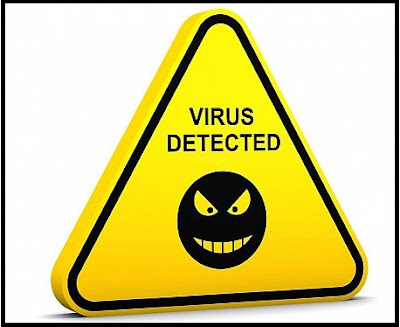Building a slide deck, pitch, or introduction? Here are the enormous takeaways:
The February Windows 10 security fix settles the endeavor and ought to be installed quickly.
Windows 10's anti-malware check interface (AMSI) is truncating records at whatever point it identifies an invalid character, leaving noxious code included after unscanned.
The ASMI blemish was recognized by security specialist Satoshi Tanda, who uncovered it in a February 16 blog entry. Microsoft settled the imperfection in its February security refresh, which is the reason Tanda distributed his piece separating every one of the points of interest of this genuine security defect.
In case you're not acquainted with how AMSI functions, that is reasonable - it's a for the most part imperceptible foundation process that goes about as a go-between for antivirus software 2018 and Windows applications.
At the point when an application needs to examine a document (of any sort), it depends on the antivirus stage running on its host machine. Applications can't converse with antivirus applications of course, yet they can converse with AMSI, and AMSI can converse with most antivirus software.
AMSI handles in any event part of the checking for the AV application it interfaces with, and thus lies the issue that Tanda found: AMSI essentially quits examining at whatever point it keeps running into an invalid character, which can be any character with every one of its bits set to zero.
The Windows 10 anti-malware software check interface, which handles malware examine demands from inside applications, was observed to truncate records at whatever point an invalid character was perused, leaving lines of code unscanned.
The February Windows 10 security fix settles the endeavor and ought to be installed quickly.
Windows 10's anti-malware check interface (AMSI) is truncating records at whatever point it identifies an invalid character, leaving noxious code included after unscanned.
The ASMI blemish was recognized by security specialist Satoshi Tanda, who uncovered it in a February 16 blog entry. Microsoft settled the imperfection in its February security refresh, which is the reason Tanda distributed his piece separating every one of the points of interest of this genuine security defect.
It isn't known whether this Windows 10 AMSI abuse has been utilized by genuine aggressors, however with it now being openly known it's certain to be endeavored. With a fix officially accessible for the issue, any individual who falls prey to it will be in an indistinguishable vessel from casualties of other prominent cyberattacks; that is, liable of not installing basic Windows 10 security refreshes.Also see: Adware removal tool
In case you're not acquainted with how AMSI functions, that is reasonable - it's a for the most part imperceptible foundation process that goes about as a go-between for antivirus software 2018 and Windows applications.
At the point when an application needs to examine a document (of any sort), it depends on the antivirus stage running on its host machine. Applications can't converse with antivirus applications of course, yet they can converse with AMSI, and AMSI can converse with most antivirus software.
AMSI handles in any event part of the checking for the AV application it interfaces with, and thus lies the issue that Tanda found: AMSI essentially quits examining at whatever point it keeps running into an invalid character, which can be any character with every one of its bits set to zero.
Also see: Browser hijacker
Any malignant code covered up after the invalid character will just go unscanned, enabling it to securely execute without recognition.
This may not appear like a significant issue- - all things considered, malware examines occur outside of AMSI's setting constantly, with the goal that code will clearly be gotten. As Bleeping Computer calls attention to, that isn't really the case since Microsoft outlined AMSI to get things regularly missed by definition-based AV software or anti malware.
AMSI, Bleeping Computer's Catalin Cimpanu stated, "inspect[s] contents conjured at runtime, for example, PowerShell, VBScript, Ruby, and others." Scripts are a typical method for getting malware past antivirus scanners. Anything that makes it less demanding for assailants to do as such, similar to this defect, requires prompt activity.
Microsoft's most recent round of security refreshes shuts this opening, however that doesn't mean assailants won't attempt to misuse it. WannaCry, Petya, and other broad cyberattacks from 2017 depended on unpatched frameworks to spread.
There's no motivation to accept aggressors will quit depending on human mistake to spread malware, so be sheltered: Install wintonic asap.












